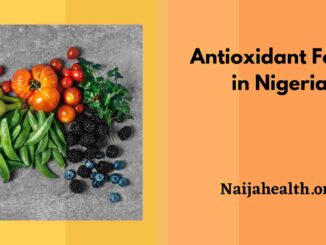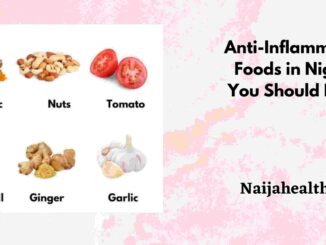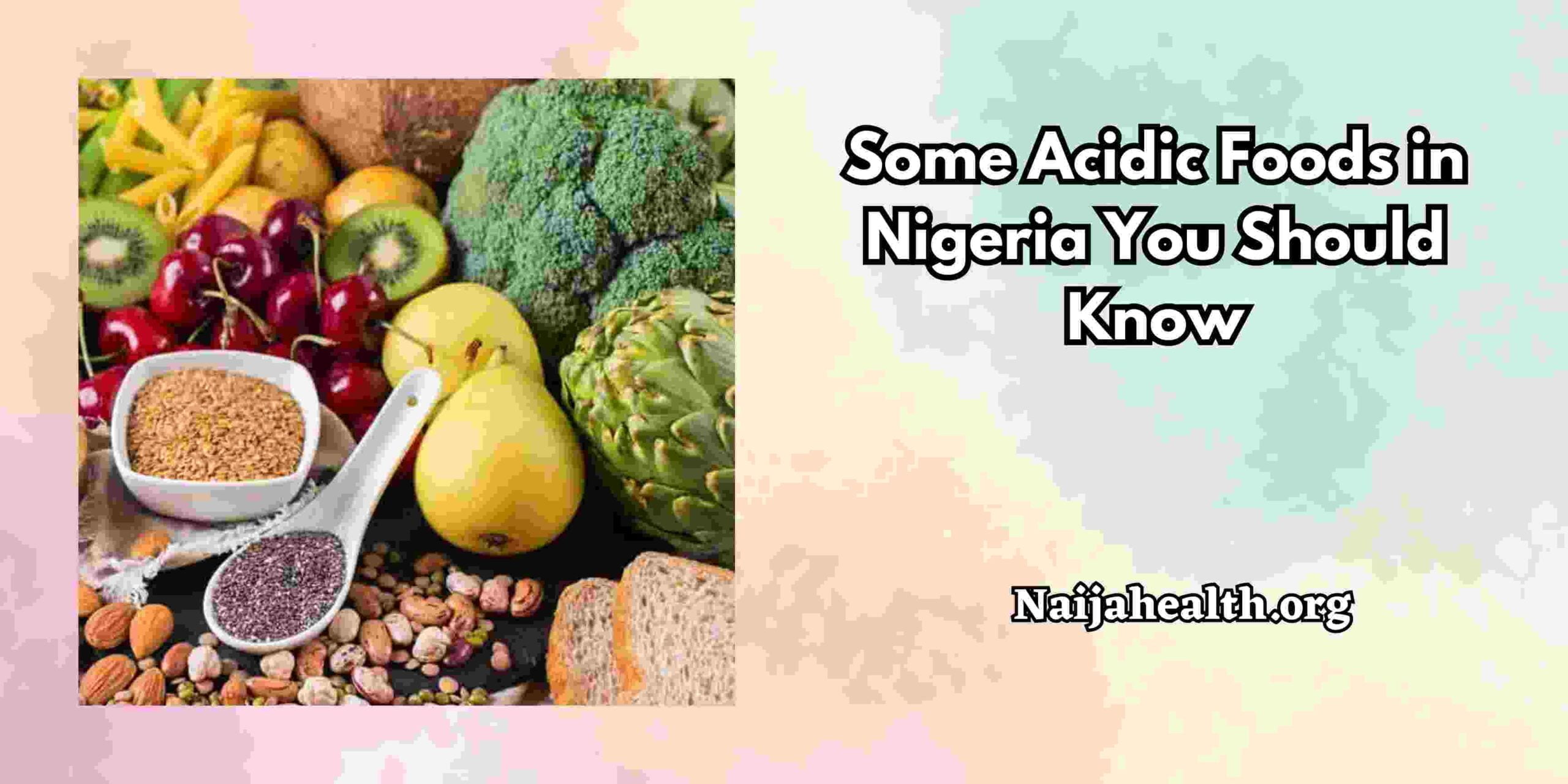
Best Baby Foods in Nigeria
Good nutrition is vital for the healthy growth and development of babies, and baby food plays a vital role in meeting their nutritional needs. In Nigeria, there is a wide selection of baby food, both commercially produced and homemade. This introduction provides an overview on the topic of the best baby food in Nigeria, emphasizing the importance of choosing nutritious and appropriate food for infants.
Newborns have special nutritional needs as they transition from a diet entirely of breast milk or formula to solid foods. Giving your baby solid foods, also known as complementary feeding, is an important step in a child’s development. It is essential to choose foods that are nutritionally balanced, safe and suitable for children’s ages and stages of development.
In Nigeria, there is growing awareness of the importance of providing high quality and nutritious baby food. Parents and caregivers have a wide selection, including commercial baby food brands, organic and natural products, homemade baby food and tailored traditional Nigerian recipes with infants.
Homemade Baby Food Recipes in Nigeria
Homemade baby foods provide a great opportunity to introduce fresh, nutritious, locally sourced ingredients into your baby’s diet.
Here are some homemade baby food recipes specially designed for Nigerian babies:
- Mashed sweet potato
- Steam or boil peeled and chopped sweet potatoes until tender.
- Puree cooked sweet potatoes with a fork or puree in a blender for a smoother blend.
- Add a little water or breast milk/formula to achieve desired consistency.
- Grate Carrots and Pumpkins
- Peel and cut carrots and pumpkin into equal parts.
- Steam or boil vegetables until soft.
- Puree cooked carrots and pumpkin until smooth, add water or breast milk/formula to adjust consistency.
- Banana porridge
- Peel and cut ripe bananas.
- In a saucepan, mix the bananas with some water or broth and cook until tender.
- Mash or puree cooked bananas to the desired consistency.
- You can also add cooked beans or vegetables for extra nutrition.
- Potato and Vegetable Puree
- Peel and cut the sweet potato into small pieces.
- Steam or boil sweet potatoes until soft.
- In a separate pot, cook a variety of vegetables such as spinach, carrots, and green beans until tender.
- Mash cooked yams and mix with cooked vegetables, adding water or breast milk/formula if needed.
- Nigerian brown rice and mashed chicken
- Cook brown rice according to package directions until tender.
- In another saucepan, cook the boneless chicken pieces until cooked through and tender.
- Mix rice and chicken together, add water or chicken broth to achieve desired consistency.
- Pawpaw puree (Papaya)
- Peel the ripe papaya, remove the seeds.
- Cut the papaya into small pieces.
- Mash papaya in a blender until smooth, add water or breast milk/formula if needed.
- Nigerian Moi Moi (Bean Pudding)
- Black beans soak overnight, then put in a blender to puree.
- Add finely chopped onion, crayfish (if desired) and a little water to get a thick but liquid mixture.
- Steam the mixture in each ramekin or steamer until solid and fully cooked.
- Allow to cool before giving small portions to your baby.
6 Best Baby Foods in Nigeria
Here is an in-depth discussion of the top seven foods for children in Nigeria:
- Cerelac
Cerelac is a well-known brand that offers a variety of baby cereals that are easy to digest and are fortified with essential nutrients such as iron, calcium and vitamins. Cerelac offers options for different stages of your baby’s development, from single-grain cereals to multi-grain blends.
- Nutrend
Nutrend is known for its wide range of baby food products, including cereals and purees specially designed to meet the nutritional needs of infants. Their products are formulated to provide the balance of carbohydrates, proteins and vitamins needed for healthy growth and development.
- Ella’s Kitchen
Ella’s Kitchen offers organic baby food bags made with a combination of fruits, vegetables, and whole grains. Their products are free of artificial additives and offer a convenient, ready-to-eat option for busy parents.
- Cow & Gate
Cow & Gate is a well known brand that offers a wide selection of baby food products including cereals, purees and snacks. Their products are carefully formulated to provide essential nutrients for every stage of a child’s development.
- Bellamy’s Organic
Bellamy’s Organic is a famous brand specializing in organic baby food. Their products are made from certified organic ingredients and are free of synthetic pesticides and genetically modified organisms (GMOs).
- Make your own baby food
Homemade baby food is a popular choice among many Nigerian parents who want control over ingredients and preparation. – Homemade baby food allows using fresh local ingredients and customizing flavors and textures based on baby’s preferences.
Storage and Safety Guidelines for Baby Food in Nigeria
Good and safe storage practices are essential when it comes to baby food to ensure your child’s health and well-being.
Here are some storage and safety guidelines for baby food in Nigeria:
- Cleanliness
- Wash your hands thoroughly with soap and water before preparing baby food.
- Make sure all utensils, bowls and containers are clean and disinfected before use.
- Use separate cutting boards and utensils for raw meat, fruits and vegetables to avoid cross-contamination.
- Storage containers
- Choose BPA-free food containers or ice cube trays specially designed for baby food.
- Glass containers with tight-fitting lids are a good choice because they don’t release chemicals and are easy to clean.
- Make sure the container and lid are thoroughly washed and sterilized before use.
- Refrigeration and Freezing
- For homemade baby food, let cool to room temperature before storing.
- Refrigerate freshly prepared baby food within two hours or freeze immediately to maintain freshness.
- Divide baby food into small portions and store them in separate containers to reduce waste and make portioning easier.
- Label containers with the date of preparation and use them within the recommended storage time.
- Refrigerator storage
- Store baby food in the refrigerator below 4°C (40°F).
- Use cold storage of baby food within 48 hours to ensure safety and freshness.
- Avoid storing baby food in the refrigerator door because it has a fluctuating temperature.
- Freezer storage
- If you are going to freeze baby food, make sure it is in an airtight container or freezer bag to avoid freezing burns.
- Keep your freezer temperature at -18°C (0°F) or lower.
- Frozen baby food can be stored for up to three months, but it is best used within one to two months for best quality.
- Defrosting and Reheating
- When defrosting frozen baby food, leave it in the refrigerator overnight or use the defrost function of the microwave if you plan to use it right away.
- Thawed baby food should be used within 24 hours and should not be refrozen.
- Reheat baby food by placing it in a heatproof dish and using low heat, in the microwave or on the stovetop.
- Mix well and make sure it is heated evenly.
- Check the temperature before serving to avoid burns.
- Safety Precautions
- Always throw away baby food leftovers that have been left at room temperature for more than two hours.
- Never feed your baby directly from the bottle or box to avoid contamination.
- Avoid adding salt, sugar or honey to your baby’s food as it can be harmful to your baby.
FAQs
When should I start feeding my baby solids?
Most babies are ready to start eating solid foods around 6 months of age. However, it’s important to look for signs of readiness, such as the ability to sit with support, good head control, and an interest in food.
Should I choose homemade or store-bought baby food?
Both homemade baby food and industrial food have their own advantages. Homemade baby food puts you in control of ingredients and taste, while commercial baby foods are convenient and often fortified with essential nutrients. You can choose according to your preferences and available time.
What are common food allergens and when can I introduce them?
Common food allergens include peanuts, tree nuts, eggs, milk, wheat, soy, fish and shellfish. Usually, you should introduce these foods one at a time, starting at about 6 to 8 months of age, and monitor your baby for any allergic reactions.
How to know if your baby has a food allergy?
Food allergy symptoms may include hives, rash, swelling, vomiting, diarrhea, trouble breathing, or persistent restlessness. If you suspect you have a food allergy, see your pediatrician for proper evaluation and advice.
Can I add spices and herbs to my baby’s food?
Introducing mild spices and herbs to your baby’s food can enhance the flavor and expose your baby to a variety of tastes. However, it’s important to start with a small amount and use mild options like cinnamon, ginger, or garlic. Avoid adding salt or hot spices.
How can I encourage my child to try new foods and prevent picky eating?
Offer your baby a variety of foods with different textures, colors, and flavors. Be patient and persistent, as your baby may need several exposures to accept a new food. Make meals fun and take the lead by eating a variety of foods on your own.
Conclusion
Providing the best baby food in Nigeria involves considering factors such as nutrition, safety, convenience and personal preferences. Whether you choose commercial brands, organic options, or homemade recipes, the goal is to provide your child with balanced, nutritious food that supports growth and development.
Nigeria offers a wide selection of baby food, including reputable brands such as Cerelac, Nutrend, Ella’s Kitchen, Cow & Gate and Heinz. These brands offer convenient and nutritionally fortified options for parents looking for ready-to-eat solutions.
In addition, homemade baby food allows parents to control the ingredients, taste and texture. It offers the opportunity to introduce fresh, local ingredients, adapt traditional Nigerian recipes and expose infants to a variety of flavors from an early age.



Be the first to comment